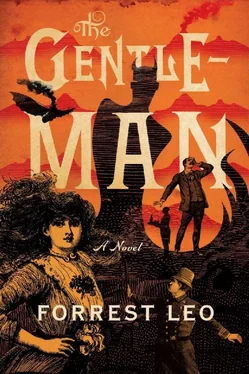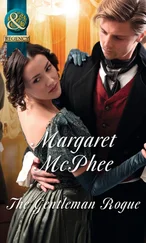Why, given the choice of subjects and voices, would a man choose to write about, say, the moral virtues of chastity? Chastity is not interesting . Moral virtue is interesting sometimes, but only sometimes! It is only interesting when an author or poet notes that it is in general uninteresting, and then works actively to counteract that. For instance, when someone (and it has not yet been done, even by my lord Alfred)* decides to set out and write an epic about King Arthur — not about the exploits of the knights and damsels of his court, but about the man himself — they will have to grapple with what the literary world has been grappling with since Chrétien, which is that Arthur Pendragon himself is by nature boring because he is an exemplar of virtue; whereas Lancelot (or Gawain or Yvain or Tristan or Perceval or Gareth or really anyone else for that matter except perhaps Galahad) is by nature interesting because his is a tale of virtue gone awry. When a great writer tackles Arthur himself directly, something quite interesting may result, if he proves equal to the task — how is virtue made compelling?
Well, I do not know. I am not myself virtuous, so it does not trouble me. I once wanted to be, but that was long ago. I am now a cowardly poet hiding in his study, hoping vainly to escape the slings and arrows of a society party. (Pendergast is here. I can sense it.)
I imagine what will happen when Simmons returns with a mask for me. I believe it will go something like this. He will come into the study and hand it to me without saying a word, because he is a good butler and does not use words unless they are necessary. I will say, ‘Thank you, Simmons,’ though I will not in fact mean it because I do not want to leave this room.
But I will leave it, for though I rail against society I cannot entirely break free of it for the sake of those I hold dear. I will open my door, the only barrier between myself and the horrors of the modern world. I will be caught up in the current of sweaty bodies pretending to be having a better time than they are.
In the hallway I will run into Sir Francis Babington, who has never entirely forgiven me for not marrying his Agnes. He will be wearing a costume of harlequin motley, holding a flute of champagne, and cackling like the Dev’l. He will say, ‘Decided to honour us with your presence, eh Savage?’ and I will know it is him because no one else I know is quite so fat nor half as abrasive.
‘Sir Francis!’ I will exclaim with insincere delight. ‘How did you recognize me beneath my mask?’
‘A mask cannot mask your air of smugness, Savage,’ he will say, and he will dart off after a sylph who is likely Mrs Frazer, though because of her costume (an Egyptian getup which hides her face and not much else) I will not be able to tell for certain.
(I was mistaken before — a self-satisfied chuckle outside my door reminds me that Pendergast is more abrasive than Sir Francis, but only just.)
I will have to avoid Pendergast — who I suppose is here only to spite me, for he does not frequent parties. He spends most evenings following the press. He has an unfortunate predilection toward Contemporary Matters, which makes his poetry even worse than it would be otherwise. I knew a man who once joked that a fellow could dispense with ever reading Pendergast if he could afford the morning paper. I am not similarly enticed by reality.
I may encounter Vivien. She will be very beautiful, and very cold. ‘Hello,’ I might say.
‘Hello, Mr Savage,’ she might reply.
‘Quite the party,’ I might say.
‘I looked for you earlier,’ she might say.
‘I was in my study,’ I would reply. ‘Writing.’
‘Ah,’ she’d say to that in a disapproving way. She would almost say something more — perhaps even take a breath to do so. But then she would let it out. She does this often, and I do not know why or about what she is thinking. That done, she would tug at a sequin on her gown (she will be dressed as something fantastical and romantic, I imagine — a princess or something similar) and look vacant. She will have nothing more to say, for she neither appreciates nor understands poetry. We never do have much to say to one another. I will fumble for words and try to think of some complimentary remark about the party, though I have forgotten why she threw it in the first place. I will almost come up with something, but just then she will exclaim, ‘Mr Murray!’ or ‘Lord Eisley!’ or ‘Is that you, Algie dear?’ and she’ll dash off and I will feel wretched.
I will wander about like Dante, but without a guide. I will bump everywhere into lost souls who will clutch at me and try to make me join their ranks. I will deflect conversational attempts as though they are fiery snares which tug at my ankles. I will avoid Pendergast’s nose. Eventually, if I am lucky, I will find Lizzie.
‘Lizzie!’ I will cry, and we will shoulder through the press of bodies and grasp each other by the hands and find a secure corner and retreat to it. She will raise her mask, and wear beneath it a look of horror. I will say, ‘Do you still imagine society parties to be fun?’ And she will apologise with her eyes and say, ‘Nellie, they are hideous! How could I ever have thought otherwise? And how have you managed to stay sane with these travails? You say something of this magnitude happens once every week or so? How dreadful! How frightful! I was quite wrong to doubt you when you said that you were cast down by fate.’
And despite the previous harsh words between us I will accept her contrition readily, because she has now stared the beast in the eye and knows what it is I am burdened with.
We will begin plotting our escape. Possibly we might make it to a window, which we could hurl ourselves through, landing bloodied and battered but free upon the cobblestones outside. Or we could maybe achieve the roof, and watch the pale disk of the moon, gently obscured by the fog, rising behind the grey dome of St Paul’s. But as we begin to sneak from the room, a man in a mask will grab Lizzie by the waist and whisk her off to dance, and I will be alone again.
I will blunder about some more, adrift amidst the sea of false words and insincerity. It will be awful, and there will be no escape, and I will feel again the crushing sense of doom I have felt since my marriage.
I do not know how it is that I wooed Vivien with so few words passing between us, but I must have done — for it was not until after our wedding that I tried talking to her and realised the mistake I had made. We had, it turned out, nothing to talk about .
I ought to have been tipped off on the day that I proposed to her. It was raining. We were taking a turn about the Park. (I had ulterior motives.) I pretended to trip, and meant to land upon one knee and propose to her in a flash of planned spontaneity. But I was forestalled — Vivien, displaying unexpected reflexes, caught my arm. We stood for a moment, pressed together, not speaking. There was something in her eyes which I could not interpret. I deliberated. I resolved to take the bull by the horns: I knelt down. I tried to speak, but my mouth had suddenly gone dry. I swallowed, but choked upon my own saliva and coughed. I tried again to speak.
‘Vivien,’ I began, but dissolved into a fit of coughing. She looked down at me, saying nothing. ‘Vivien,’ I said again, ‘Vivien, I am—’
On second thought, I am not going to tell you what I was. I had intended to record what I said, but I will not. It is private. Suffice it to say that I went on at some length, chronicling my love for her in the most poetical terms you can imagine. I have never been more poetical than I was in that moment. I wish I could remember my exact words, for they would be canonised as classic words of love. But — and looking back, I cannot believe such a thing happened and did not serve to warn me of the horrors to come — Vivien interrupted me. She looked down at me and laughed — actually laughed at me! — and pulled me to my feet, and said only, ‘Peace! I will stop your mouth.’ Then she kissed me.
Читать дальше












